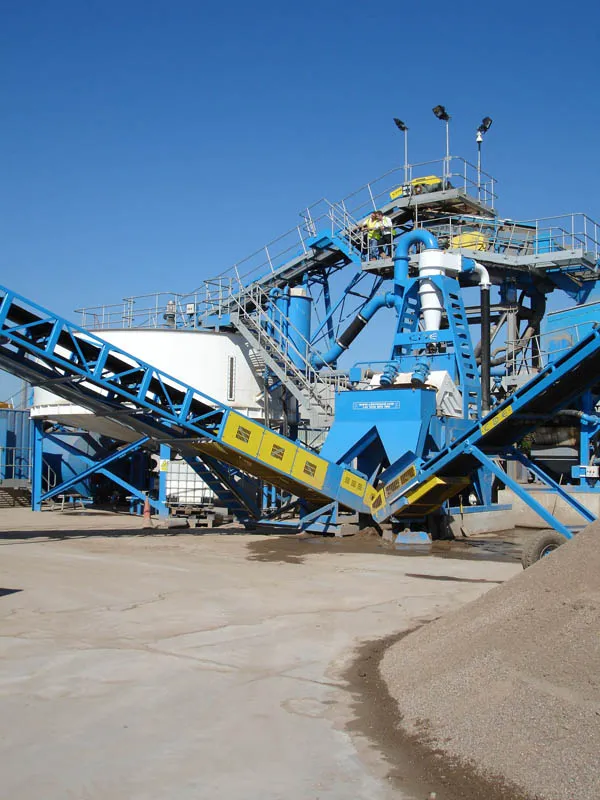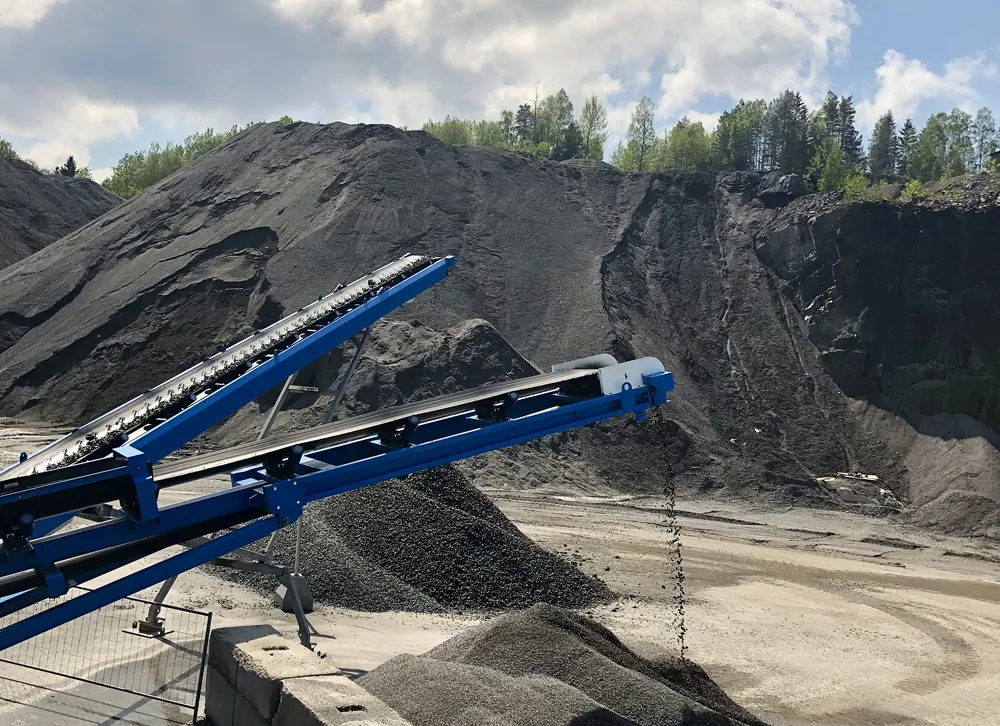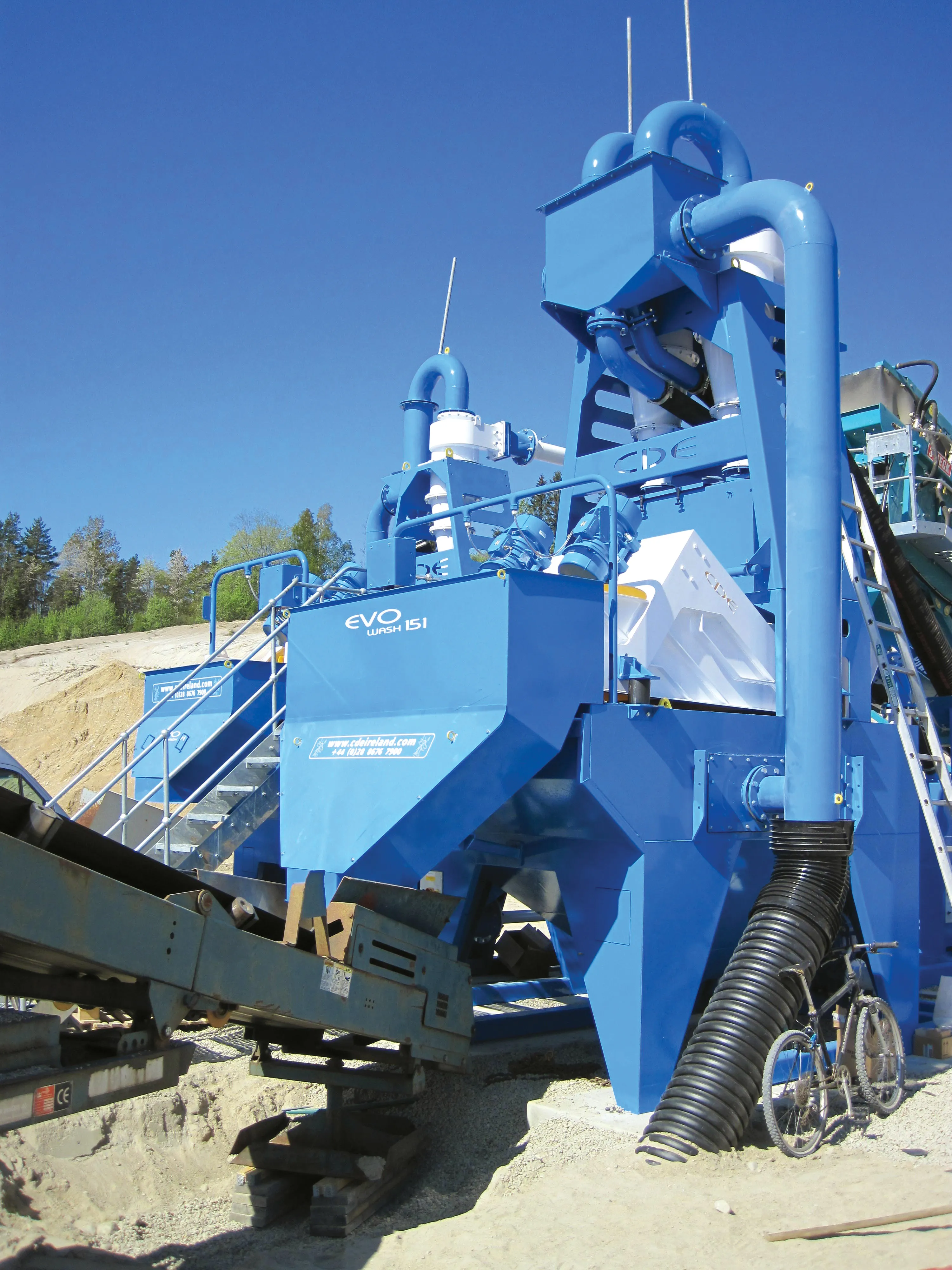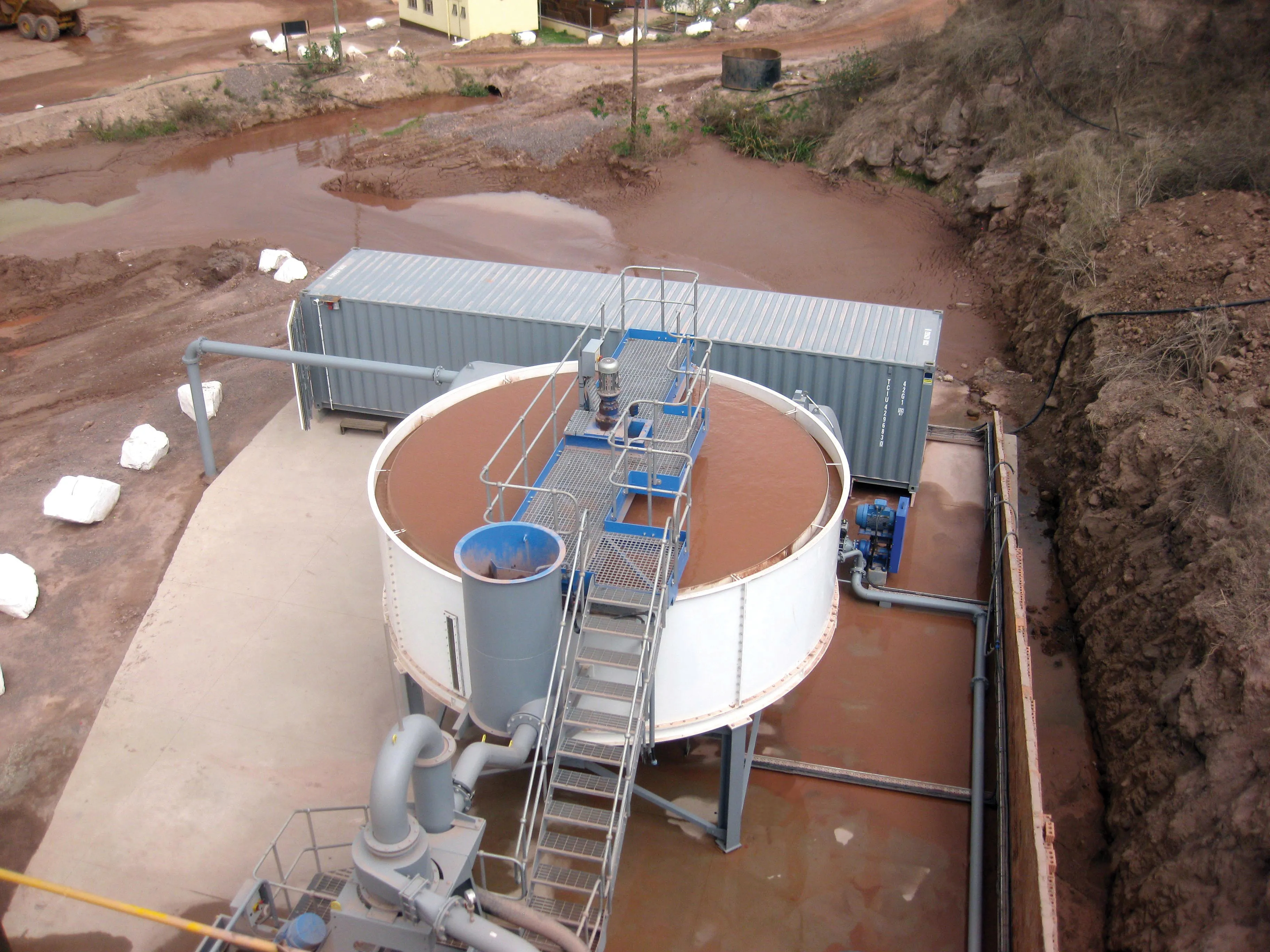A new quarry is producing top quality aggregates for Poland's massive road construction programme writes Claire Symes. Wakoz Beton's Glazica sand quarry in Poland is a major source of high quality sand and gravels for the Gdansk construction market. The site is modern and only opened in 2006 but Wakoz Beton has continued to invest in facilities to improve its efficiency and output quality. The installation of a CDE mobile washing plant at the site last year is allowing it to provide materials for concrete.
February 24, 2012
Read time: 5 mins

A new quarry is producing top quality aggregates for Poland's massive road construction programme writes Claire Symes
Much of the high quality sand and gravel being produced at the quarry in Glazica is being used to meet demand for concrete construction on the S7 southern ring road project in Gdansk.
Work on the scheme is being carried out by Wakoz Beton's sister company Wakoz, which is working in joint venture with Germany's
Completion of the €400million project in July next year, ahead the Euro 2012 football tournament, will also help to ease the flow of traffic, estimated to be around 30,000 cars/ day, around the city. Work on the 18km link road began in 2009 and the aim was to provide a bypass to urban areas and link the S6 and A1 motorways, providing a key connection to Warsaw. According to Wakoz, the new link will help to remove 12,000-14,000 vehicles/ day from the city centre of Gdansk to give more reliable journey times around the city and easier travel within the city itself.
To help improve availability of materials to the project, Wakoz has also invested in a new asphalt plant which not only serves the material demands of the S7 construction work but also the asphalt market in the wider Gdansk area. The 320tonne per hour
The asphalt facility, which includes a modern laboratory and is fully automated, is currently supplying 350,000tonnes of material for the Gdansk ring road upgrade work.
Wakoz Beton's parent company is a main contractor for projects all over Poland and is also in the process of investing in a new mobile asphalt plant for the work it is involved in with Sando and Energopol.
The quarry is located 30km west of Gdansk, and Wakoz's on-highway tipper trucks transport the material from the quarry to the company's six ready mixed concrete plants located strategically around the city.
Quarrying has been carried out in the Glazica area since the 1970s when operations were undertaken by the government-owned KruszGeo but in the 1990s the company became bankrupt and was bought by private businesses.
Wakoz Beton is currently one of three quarry operators permitted to extract material from the sand and gravel deposit at Glazica. One of the challenges to operating at the site is that the quarry boundary lies just within the Natura 2000 Trojmiejski Park Krajobrazowy. This proximity placed limitations on the quarry in terms of noise and dust.
The company has permission to extract from a 7ha area but the deposit is long, deep and narrow so the size of the quarry belies its size, the largest sand of its type in Northern Poland. The company has consent for reserves at the site of around 2million tonnes and the quarry extracts 150,000-300,000tonnes/year at present. The site has enough reserves to last the next 25 years at current rates of extraction but consent only extends to a depth of 40m below ground level while the deposit is thought to be 70-80m deep.
Material at the top is generally in the 0-2mm size range but increases to 6mm nearer the bottom and it was this grading that led Wakoz to invest in washing equipment in order to produce high quality clean sand.
Material is excavated by wheeled loader or excavator and screened before it is washed by the recently installed CDE M2500 mobile washing plant, which replaced an Evowash system at the site. The plant was installed at the site in September 2010 and is close to paying for itself in terms of improved quality of the material, according to the firm. There is little water available on-site so a key factor in the choice of this equipment was its low water consumption, just 13m3/hour when in operation. The material is high in quality but there is a high sand volume, up to 80% in some parts, although it is mostly around 60% and this limited production. Before the M2500 was commissioned, the site's sand contained 3% dust but now it has less that 0.2%, which suits it for use in high quality ready mixed concrete production.
Another way that the new plant is benefitting Wakoz is in terms of power as the M2500 is electrically driven. This not only makes it quiet but also more cost effective to operate as diesel fuel is expensive in Poland and fuel for the two machines on-site probably accounts for 15-20% of the running costs. The M2500 is a mobile unit that can be relocated within the Glazica site as work progresses and can be assembled within 48 hours. The EX4 version of the plant at Glazica allows the quarry to wash and accurately size four products - two sands and two aggregates - simultaneously at a rate of up to 120tonnes/hour.
Wastewater from the washing plant is fed into the CDE AquaCycle A400, which removes the need for settlement lagoons to recover water - this was an essential element for Wakoz given the space constraints. According to
The quarry is using deep mining methods and operated at three levels simultaneously with slope angles of 65-70% in active areas and an 8m bench height, which has been designed to ensure safety. Although the site is quiet, even when in full production with just five people working across both shifts, the arrival of the washing plant has increased productivity and the quarry is currently awaiting delivery of a








